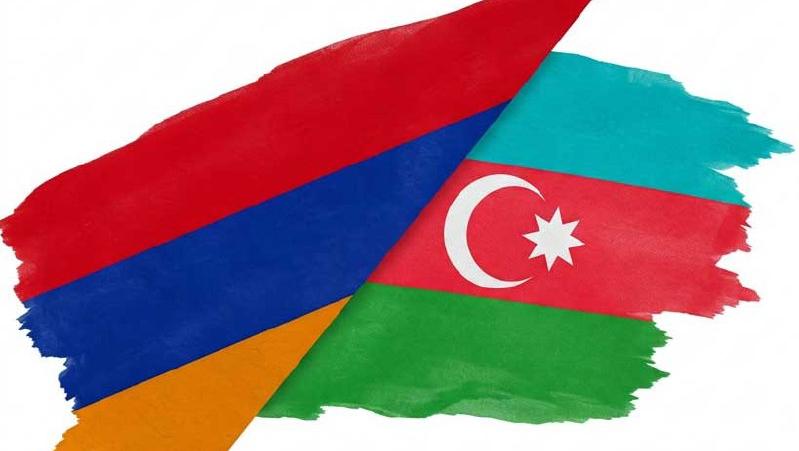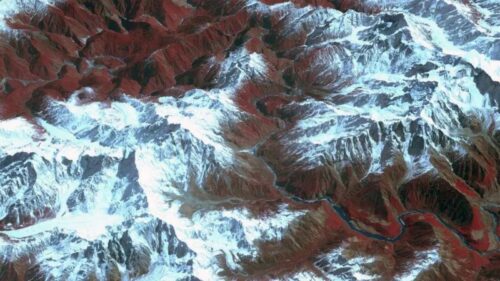
Azerbaijan’s ‘scrolling aggression’ may soon explode into a new escalation
Azerbaijan’s victory in Nagorno-Karabakh was not the end of its conflict with Armenia and Armenians, but merely a turning point in an ongoing campaign. Baku has pursued what might in the spirit of the times be called “scrolling aggression” — a gradual escalation, Modern Diplomacy writes.
Until now, Azerbaijan’s President Ilham Aliyev has expanded influence incrementally—by seizing small territories, using diplomatic coercion, ensuring through aggressive rhetoric that Armenia remains on the defensive, then in late 2022 blockading Nagorno-Karabakh and finally, in Sept. 2023, attacking it and causing the exodus of its 120,000 ethnic Armenians.
Now Aliyev is after an even bigger prize: the Zangezur (or Meghri) “Corridor”, which Azerbaijan sees as a critical trade route between its Turkish patron and Central Asia. He knows his military and economic superiority will not last forever, and views the next year or two as a critical window to act before Armenia closes the gap. The questions are whether Armenia will properly prepare–and whether the West will continue its indifference and acquiescence. Aliyev’s approach is shaped by four key factors:
- Internal Politics and Armenophobia: Years of state-sponsored hatred against Armenians have created strong public expectations in Azerbaijan for continued pressure on Armenia. Aliyev leverages this sentiment to maintain his autocratic rule, one of the harshest in the world by any measure, distracting from internal economic challenges.
- Fear of Decline: Azerbaijan’s economy is currently at its peak, bolstered by high oil and gas revenues, about $75 billion in reserves (SOFAZ State Oil Fund of Azerbaijan assets and national reserves) and a $5 billion military budget for 2025 (compared to Armenia’s $1.7 billion). However, Armenia’s per capita GDP is rising faster, and as Azerbaijan’s oil wealth declines, the gap will close. Aliyev understands this and sees 2025 as a closing window for action.
- The Prevailing Hobbesian Winds: Vladimir Putin’s assault on Ukraine, Turkey’s brutal interventions in Syria, and not Donald Trump’s own threats against Denmark (over Greenland), Panama (over the canal) and Canada (which he seems to want to annex all suggest a perhaps limited period in which might makes right.
- Aliyev’s Subtler Relationship with the West: Unlike Russia’s Vladimir Putin or Alexander Lukashenko of Belarus, Aliyev has kept diplomatic bridges intact. He regularly attends the World Economic Forum in Davos, engages Western leaders, and offers transactional deals that make the EU hesitant to confront him.
- Turkey’s Strategic Victory in Syria: Following regime change in Syria in December 2024, with the victory of rebels back by Turkey, Ankara has significantly expanded its influence. The key question now is whether Turkish President Recep Tayyip Erdogan will consolidate power in Syria only—or leverage his momentum to push further for a pro-Turkic corridor through Zangezur to Azerbaijan and Central Asia.
- Turkey-Azerbaijan Alignment Strengthens: Turkey and Azerbaijan’s strategic alliance remains intact, despite the potentially embarrassing ethnic cleaning of Nagorno-Karabakh’s 120,000 ethnic Armenians. Ankara continues to providing diplomatic cover and military support and will likely deploy its clout as a NATO member to ensure Azerbaijan faces minimal Western pushback.
- Russia’s Potential Return to the Region: A potential resolution of the Ukraine war could see Russia reasserting its influence in the South Caucasus. Depending on how events unfold, Moscow could either stabilize or further destabilize Armenia’s security situation.
- Iran’s Position in the South Caucasus: While Iran has historically opposed Azerbaijan’s expansionism, recent developments have weakened its ability to counterbalance Turkish and Azerbaijani moves. If Tehran is further weakened by external pressures, such as an Israeli attack on its nuclear sites, Baku may feel emboldened.
To counter Azerbaijan’s threats, Armenia should pursue a multi-faceted strategy. It should accelerate military reforms and engage Trump’s Administration effectively. Armenia should counter Azerbaijan’s narrative in international arenas. Baku’s diplomatic efforts have largely shielded it from Western sanctions despite its aggression. Armenia must launch a global awareness campaign highlighting Azerbaijan’s human rights violations and expansionist ambitions to increase diplomatic pressure on Baku. The next two years will determine whether the country secures its sovereignty or remains vulnerable to regional power plays.



